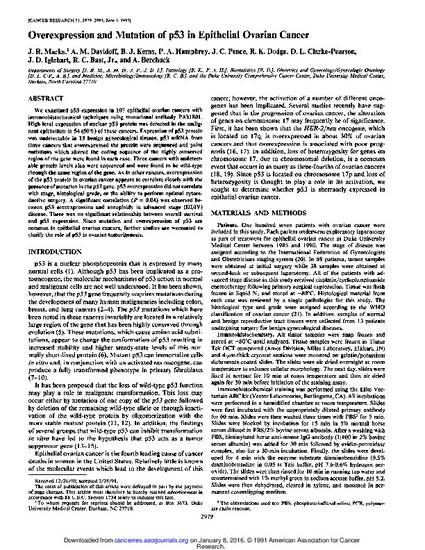
We examined p53 expression in 107 epithelial ovarian cancers with immunohistochemical techniques using monoclonal antibody PAb1801. High level expression of nuclear p53 protein was detected in the malignant epithelium in 54 (50%) of these cancers. Expression of p53 protein was undetectable in 13 benign gynecological tissues. p53 mRNA from three cancers that overexpressed the protein were sequenced and point mutations which altered the coding sequence of the highly conserved region of the gene were found in each case. Three cancers with undetectable protein levels also were sequenced and were found to be wild-type through the same region of the gene. As in other cancers, overexpression of the p53 protein in ovarian cancer appears to correlate closely with the presence of mutation in the p53 gene. p53 overexpression did not correlate with stage, histological grade, or the ability to perform optimal cytoreductive surgery. A significant correlation (P = 0.04) was observed between p53 overexpression and aneuploidy in advanced stage (III/IV) disease. There was no significant relationship between overall survival and p53 expression. Since mutation and overexpression of p53 are common in epithelial ovarian cancers, further studies are warranted to clarify the role of p53 in ovarian tumorigenesis.
Available at: http://works.bepress.com/jeffrey_pence/15/
